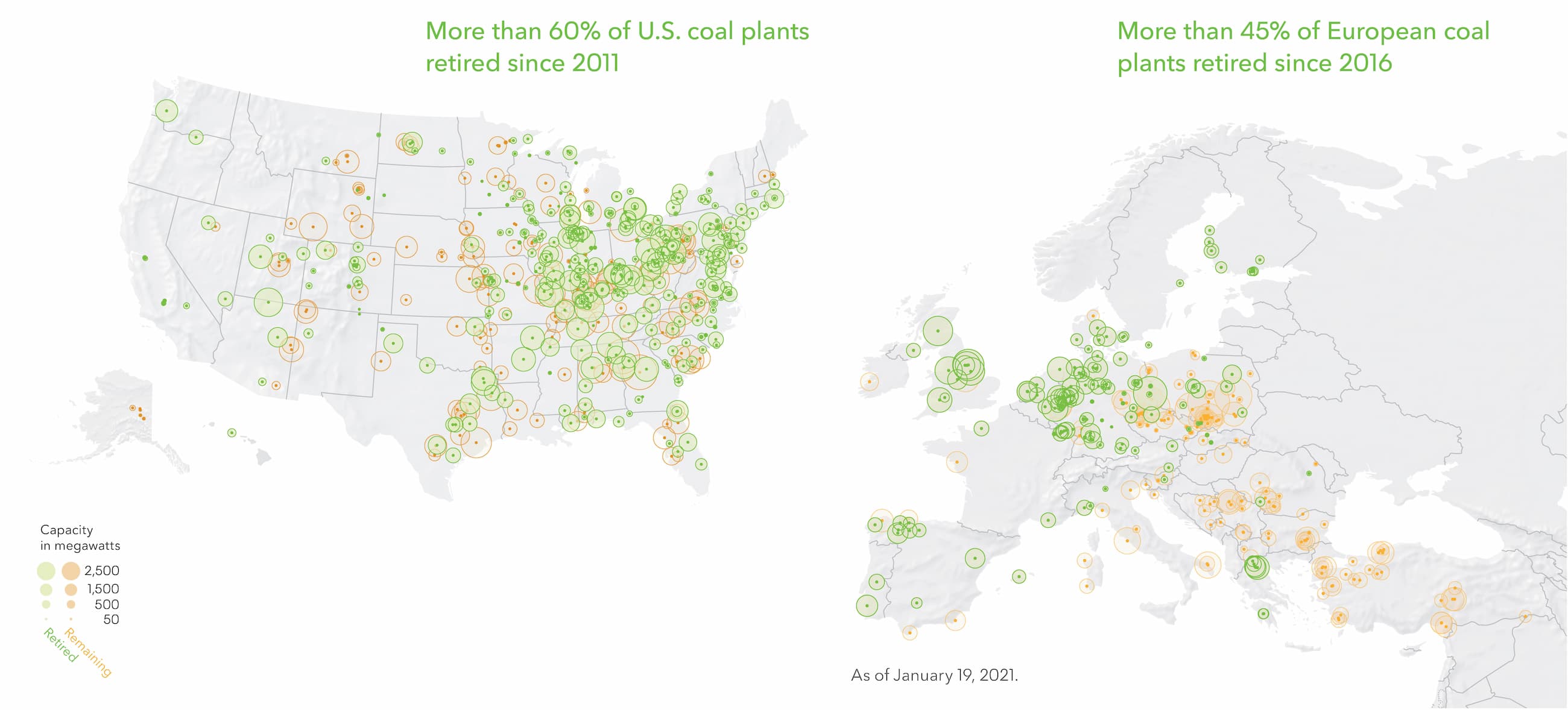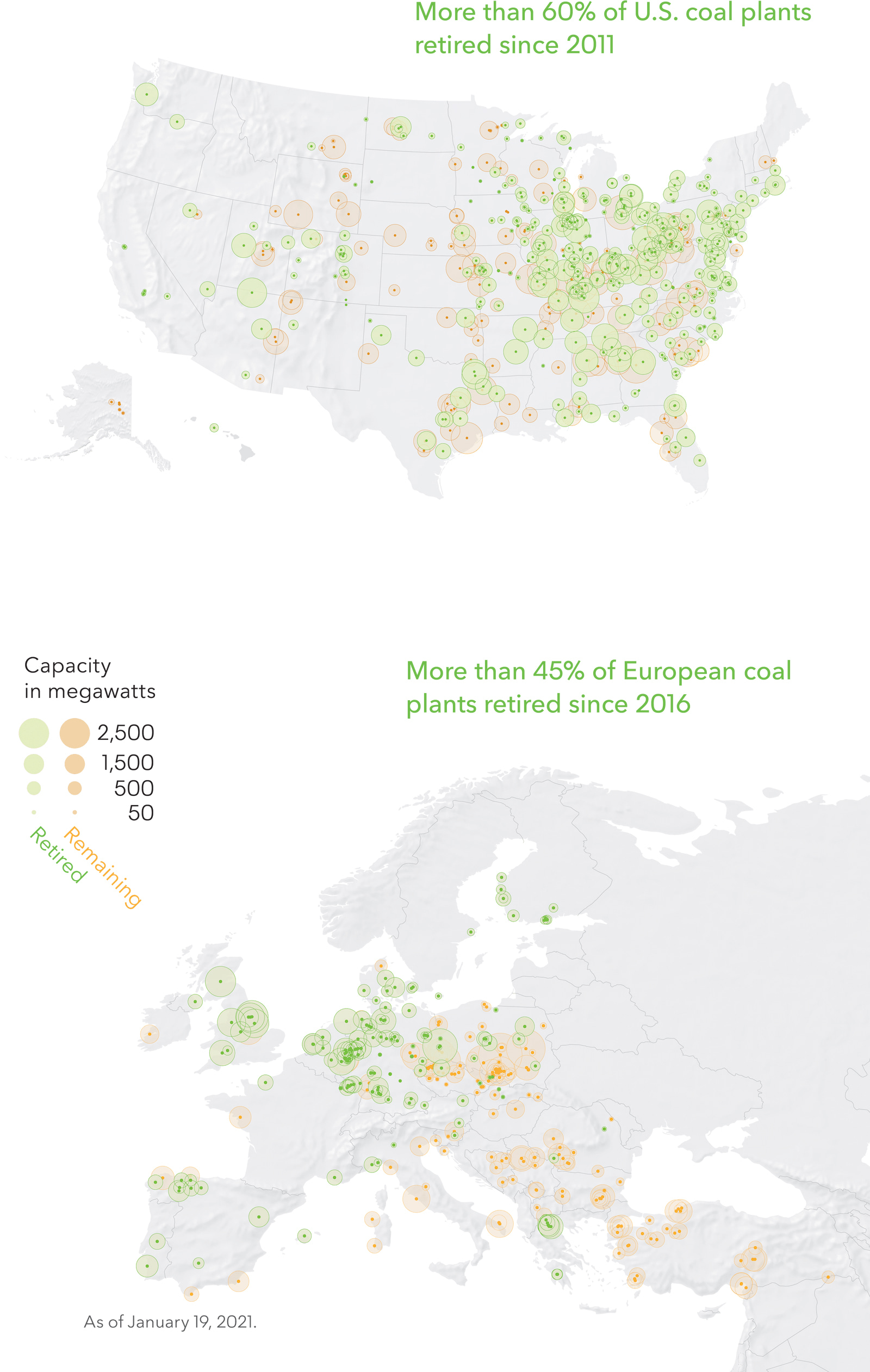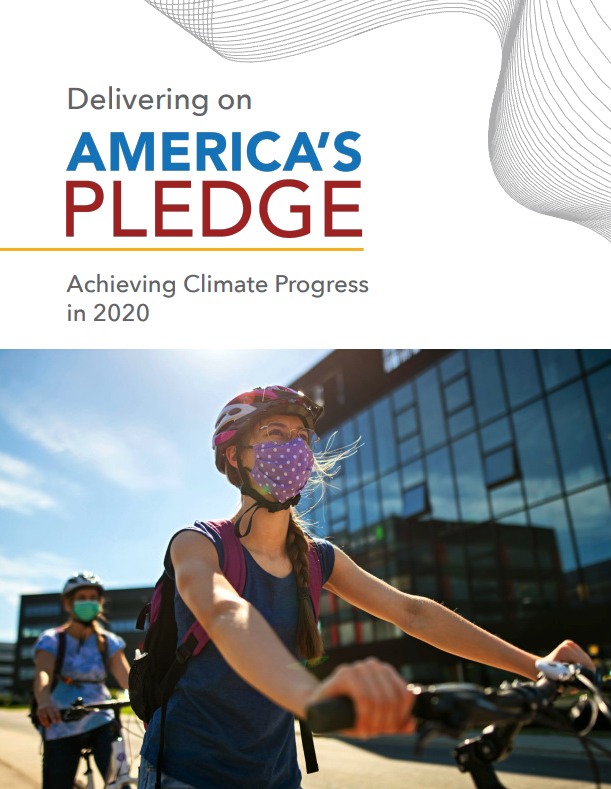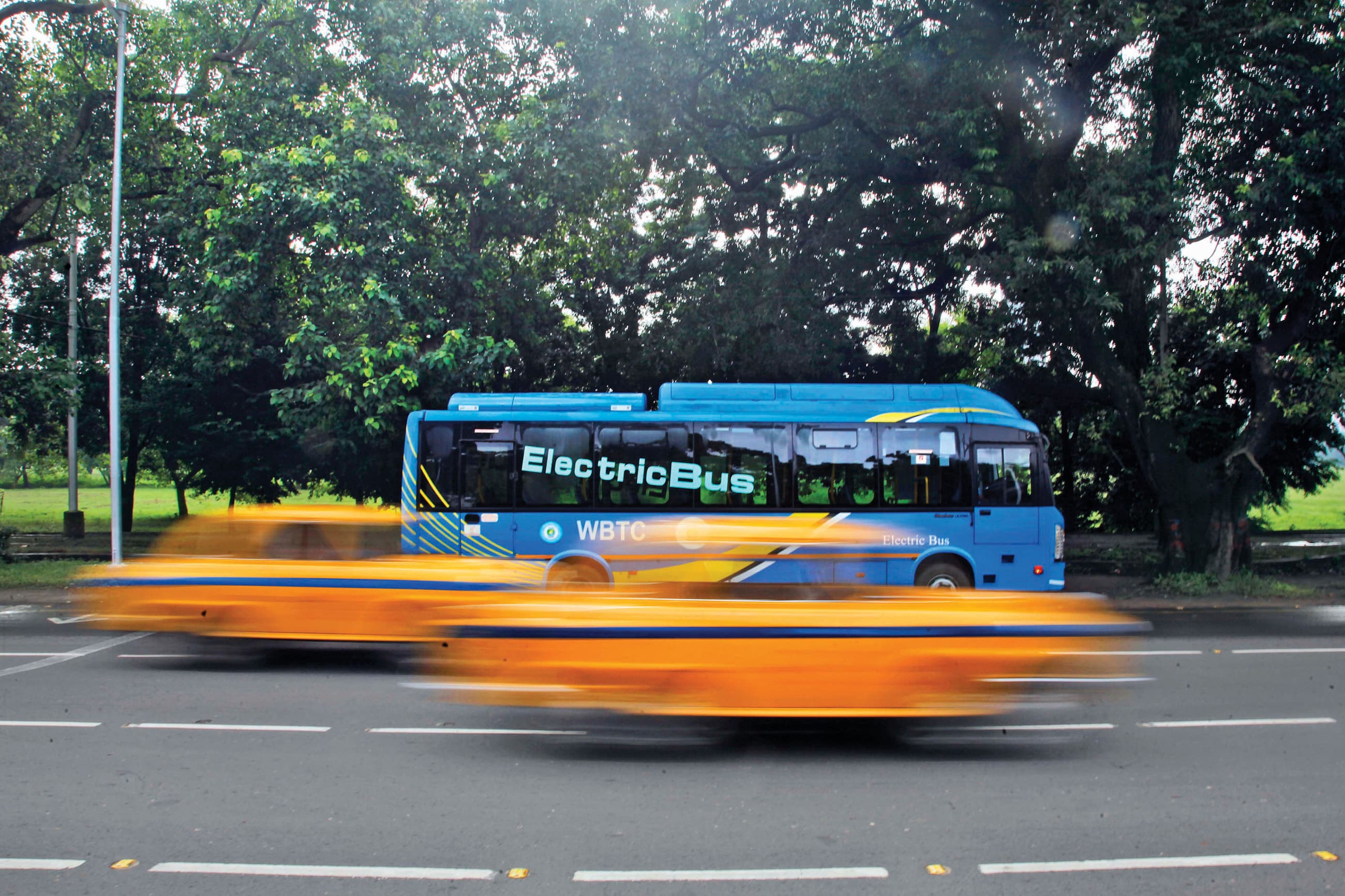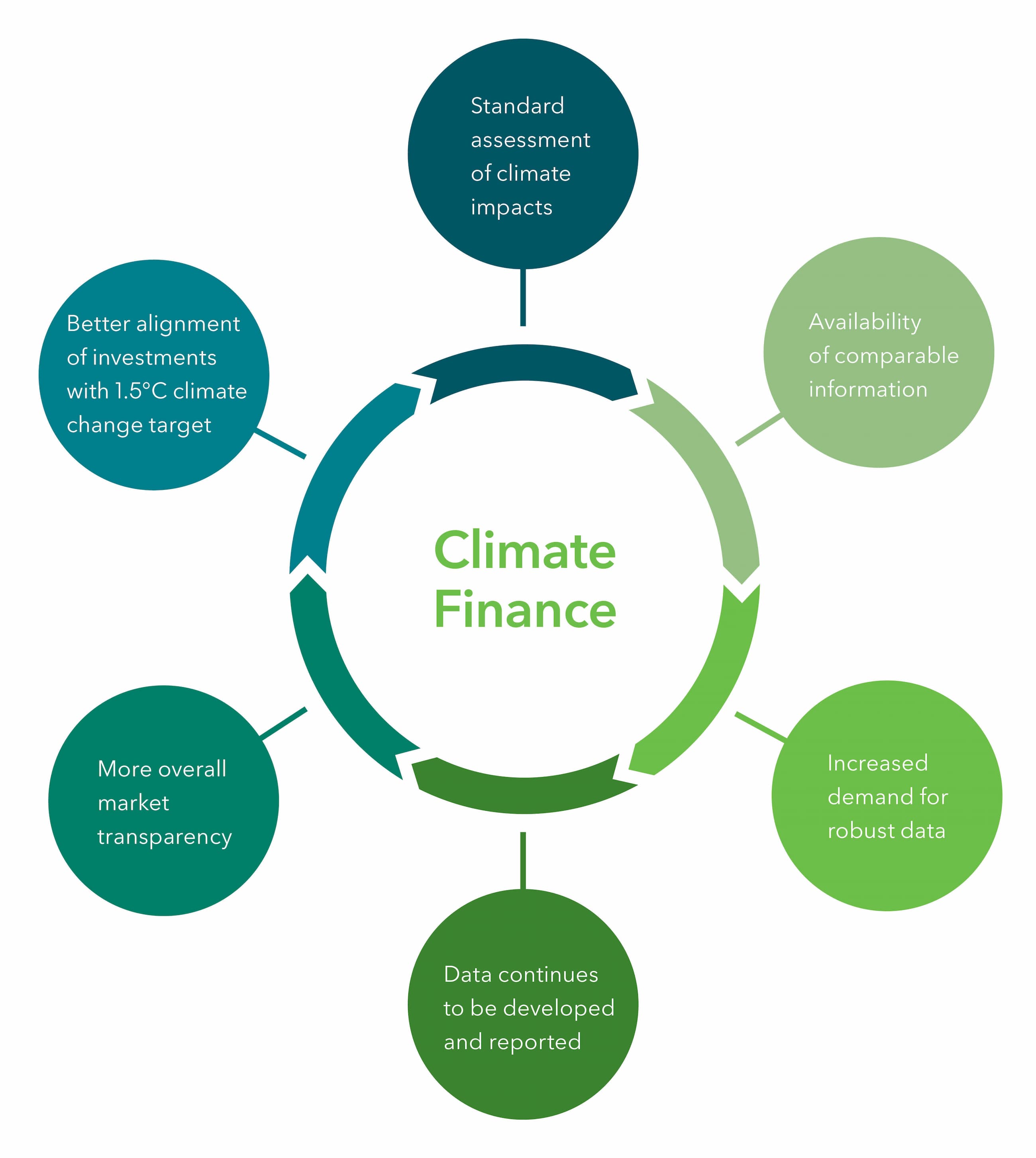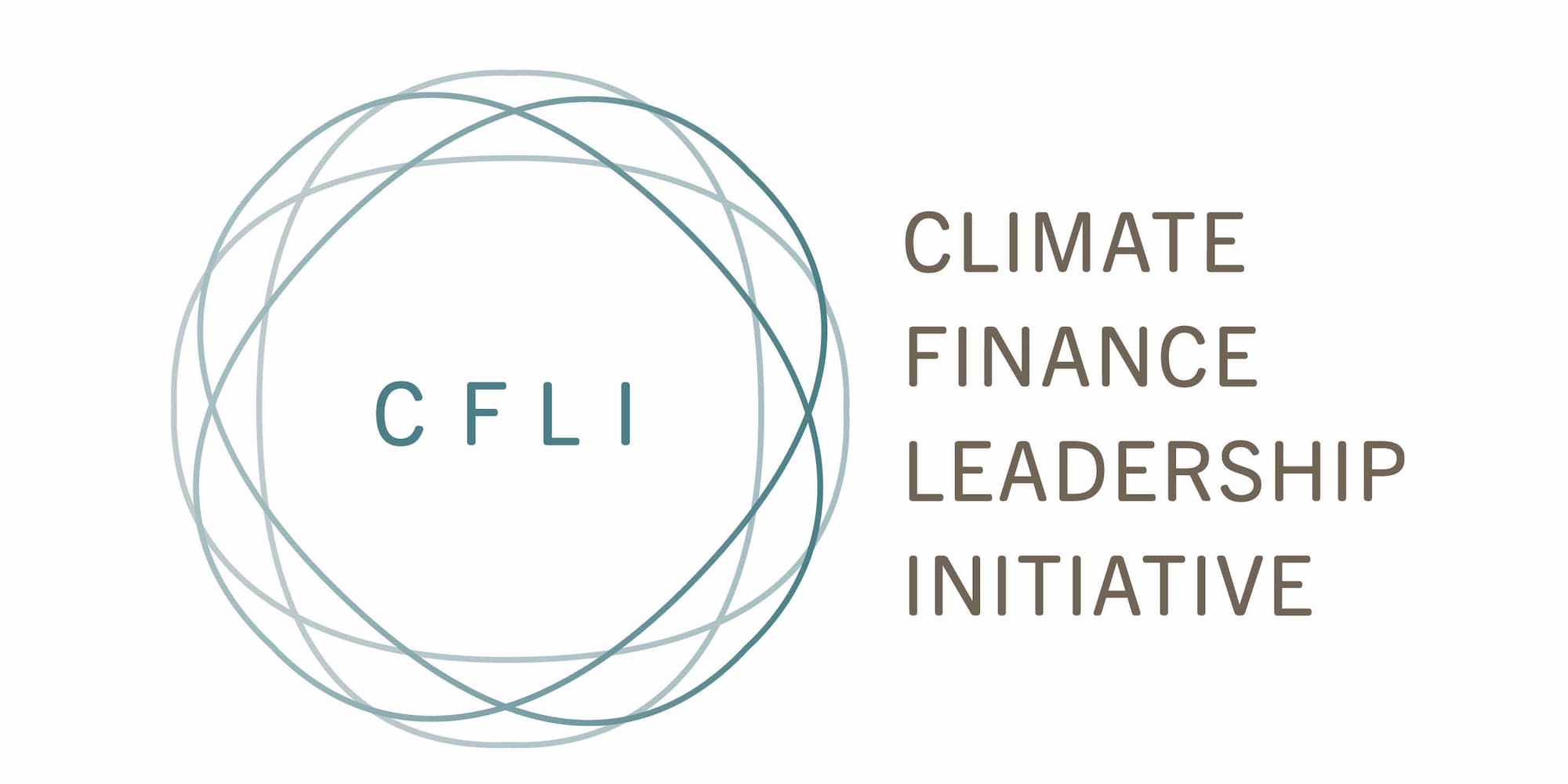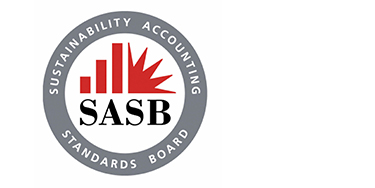The Environment
Bloomberg Philanthropies’ Environment program fights climate change and protects the environment across a key array of issues, from retiring coal plants to supporting action in cities.
The COVID-19 pandemic has been devastating to public health and the global financial system — but as governments work to recover, they have a once-in-a-lifetime opportunity to accelerate the transition to clean energy and build a more sustainable, resilient, and equitable economy. In this pivotal moment, the Environment program’s long-standing global work with governments, businesses, and grassroots partners to tackle the climate crisis and protect the environment is more critical than ever.
“Bloomberg Philanthropies is helping cities navigate emerging challenges caused by the pandemic — from traffic surging to public transit ridership plummeting — while advancing bold action that will continue to deliver health, equity, and economic benefits for communities.”
Gina McCarthy
Former President and CEO
Natural Resources Defense Council (NRDC)
National Climate Advisor, Biden Administration
Coal produces 30 percent of global carbon emissions, and ending its use is a crucial step in the fight against climate change. Investing in clean energy is also good for public health and for the economy.
Beyond Carbon
Launched in 2019, Beyond Carbon is the largest coordinated campaign to fight climate change in U.S. history. The effort builds on the success of the U.S. Beyond Coal campaign, led by the Sierra Club and backed by Bloomberg Philanthropies, that has helped to retire more than 60 percent of all U.S. coal plants in less than a decade. Beyond Carbon is working to retire all U.S. coal plants by 2030, stop the construction of proposed gas plants, and — through Mike’s personal political support — help win policy changes at the state and local levels.
In addition to retiring the majority of U.S. coal plants, these efforts have helped pass key laws in states across the country. Nine states, as well as Puerto Rico and Washington, D.C., now have laws requiring 100 percent clean energy.
Global Beyond Coal Campaigns
Building on the success of the U.S. Beyond Coal campaign, Bloomberg Philanthropies helped expand the campaign to Europe in 2017. That success inspired the launch of new campaigns in Australia in 2019 and in South Korea and Japan in 2020. These campaigns, which rally grassroots support to fight existing and proposed coal plants, are making important progress. For example, Europe Beyond Coal has now helped retire more than 45 percent of all coal plants across the continent.
Air Pollution
Air pollution is a major threat to public health around the world, including contributing to health problems that put people at greater risk from COVID-19, and it is often caused by major sources of greenhouse gas emissions. Bloomberg Philanthropies supports pilot projects in Brussels, Jakarta, London, and Paris, and key partnerships at the national level to gather data and better manage air pollution.
In India, as the pandemic shut down the country’s economy, air pollution dropped so dramatically that residents in some northern cities were able to see the Himalayas for the first time in decades. To improve air quality permanently, Bloomberg Philanthropies has built on its work as a technical knowledge partner on India’s National Clean Air Program, which aims to reduce pollution by 20–30 percent by 2024.
Around the world, cities are leading the fight against climate change. Now, with help from Bloomberg Philanthropies, cities are seizing this opportunity to lead a green recovery from the pandemic.
American Cities Climate Challenge
In 2018, Bloomberg Philanthropies launched the American Cities Climate Challenge, a program that works closely with 25 major U.S. cities to develop and implement climate policies. Focused on reducing emissions from buildings and transportation — the two largest emissions sources in most cities — the program provides powerful resources and support, including embedded staff, technical assistance, and implementation expertise.
The Climate Challenge has adapted its work to continue making progress despite the pandemic. For example, Honolulu, Hawaii, accelerated the installation of bus-only lanes on major routes to improve public transit for essential workers, and Seattle, Washington, closed 20 miles of roads for pedestrians to enjoy — an initiative that the city has now made permanent.
Columbus, Ohio, passed a ballot initiative enabling all electricity in the city to be renewable by 2022
Bloomberg Philanthropies is helping cities make climate progress and take new steps to drive a green recovery, despite the challenges posed by the pandemic and by the lack of federal climate leadership from the Trump administration.
In Charlotte, North Carolina, Mayor Vi Lyles launched a Renewable Energy and Efficiency Workforce (RENEW) Training Program to provide new career pathways for local workers — including those who have lost their jobs due to COVID-19. It aims to achieve the sustainable workforce development goals that Charlotte set through the American Cities Climate Challenge. The program provides residents with heating, ventilation, and air conditioning training that emphasizes improving building energy efficiency, and electrical training that includes solar panel installation and maintenance and electric vehicle maintenance and charging.
Thanks to strong commitments and initiatives like this one — championed by states, cities, businesses, universities, and cultural organizations across the country — the United States can meet the Paris Agreement goals with federal re-engagement beginning in 2021.
“We can’t wait to act on climate until the pandemic is over, as both issues are innately linked and vital to building a greener, healthier, more equitable, and resilient city.”
Vi Lyles
Mayor
Charlotte, North Carolina
America’s Pledge
Launched by Mike Bloomberg and then-Governor of California Jerry Brown in the wake of President Trump’s decision to withdraw the United States from the Paris Agreement, America’s Pledge measures and reports the efforts of more than 4,000 cities, states, businesses, and other local groups that are committed to achieving the country’s original emissions reduction targets.
Watch how U.S. states, cities, businesses, universities, and others have steadily demonstrated commitments to strong climate and clean energy leadership
12 tribal associations representing hundreds of tribes, 25 states, 500+ cities, 350+ colleges, and 2,275 businesses committed to achieving the goals of the Paris Agreement
In September 2020, America’s Pledge released its fourth and final annual report on continued U.S. progress toward the Paris Agreement goals. The report found that even the disruptions caused by COVID-19 have not slowed climate progress at the local level. In fact, strong, dedicated progress from local leaders despite these challenges — coupled with market forces and demand from constituents — has ensured that the United States passed a tipping point in its transition to clean energy. With additional leadership at the federal level, the country can move back on track to meet its Paris Agreement goals.
C40 Cities Climate Leadership Group
Mike Bloomberg serves as board president of the C40 Cities Climate Leadership Group, a global network of 97 major cities whose mayors have committed to cutting emissions and becoming more resilient to the effects of climate change.
In response to the pandemic, C40 released a detailed road map that lays out a series of bold measures to help cities achieve a sustainable and equitable recovery from the COVID-19 crisis. The group has also published research and advocated for governments to make sustainability and climate solutions a core pillar of their economic stimulus efforts.
Global Covenant of Mayors for Climate & Energy
Along with Frans Timmermans of the European Commission, Mike co-chairs the Global Covenant of Mayors for Climate & Energy, a network of more than 10,000 cities and local governments that works to create ambitious, measurable targets to reduce and limit greenhouse gas emissions. It measures and reports on progress to hold cities accountable and helps share best practices across the network. The Global Covenant has advocated for a green and sustainable recovery through initiatives focused on developing the next generation of data, tools, and technology to tackle sustainability challenges.
Task Force on Climate-related Financial Disclosures
The Task Force on Climate-related Financial Disclosures (TCFD), chaired by Mike, develops recommendations to help firms voluntarily disclose information on the climate-related risks and opportunities they face.
Since the TCFD first released its recommendations in June 2017, they have been endorsed by more than 1,700 organizations, representing over $17.3 trillion in market capitalization. Hong Kong, New Zealand, Switzerland, and the United Kingdom have all announced plans to make TCFD implementation mandatory, and the European Union has aligned its own disclosure requirements with the recommendations. Sustainable finance and TCFD guidelines are a pillar of COP26, which is set to be held in November 2021 in the United Kingdom in Glasgow, Scotland.
Sustainability Accounting Standards Board
The Sustainability Accounting Standards Board (SASB) provides detailed, industry-specific standards to help companies assess and disclose sustainability-related information. SASB has published the first-ever sustainability accounting standards for 77 different industries and made them freely available online. In 2020, leading global investors — including SASB’s 55-member Investor Advisory Group who represent $41 trillion assets under management — called upon companies to use SASB Standards. Mike served as chair of SASB from 2014 to 2018 and remains chair emeritus.
Climate Finance Leadership Initiative
Launched by Mike in January 2019 to support global Paris Agreement goals, the Climate Finance Leadership Initiative (CFLI) works to increase private-sector investment in clean energy and climate solutions in emerging markets. As chair, Mike convened seven founding members to lead the work, including executives at Allianz Global Investors, AXA, Enel, Goldman Sachs, HSBC, Japan’s Government Pension Investment Fund, and Macquarie.
The initiative’s first report, released in September 2019, focused on building partnerships and helping carbon-intensive industries transition to cleaner alternatives. The CFLI also announced a new partnership with the Association of European Development Finance Institutions (EDFI) to advance climate finance efforts in emerging markets.
1,700+ organizations with $17.3 trillion in market capitalization endorsed TCFD recommendations
Directs new private-sector investments to clean energy and climate solutions in emerging markets
Provides industry-specific standards to help companies assess and disclose sustainability-related information
Develops recommendations to guide companies’ disclosures of climate-related risks and opportunities
Around the world, more than three billion people rely on the ocean for food or their livelihood, making local fishers essential workers during the pandemic. With a focus on ten countries that produce more than 80 percent of all fish caught worldwide, the Vibrant Oceans Initiative advocates for policy changes to protect reefs and fisheries, shares data to inform policymaking, and builds partnerships with governments and other philanthropic funders.
Watch how small-scale fisheries continued to feed their communities through COVID-19
Nine countries have passed national marine protective policies, like fishing quotas, and nearly 6.5 million square miles of oceans have been protected thanks to Bloomberg Philanthropies’ support. As part of the global effort to improve transparency, Bloomberg Philanthropies has worked with partner Global Fishing Watch to make fishing data available on the Bloomberg Terminal.
In the Philippines, one of the initiative’s focus countries, 1.9 million people are small-scale fishers, catching nearly half of the country’s fish — an important food source. Bloomberg Philanthropies works with partners, including local governments, to set aside protected areas and adopt sustainable fishing practices that protect the environment and sustain the fish population. As the pandemic has caused greater food insecurity around the world, this work to protect ocean ecosystems is more essential than ever.
Top photo: Minneapolis, Minnesota’s bike share program is helping to improve mobility options and reduce carbon emissions in the city. Credit: Caroline Yang/NRDC


